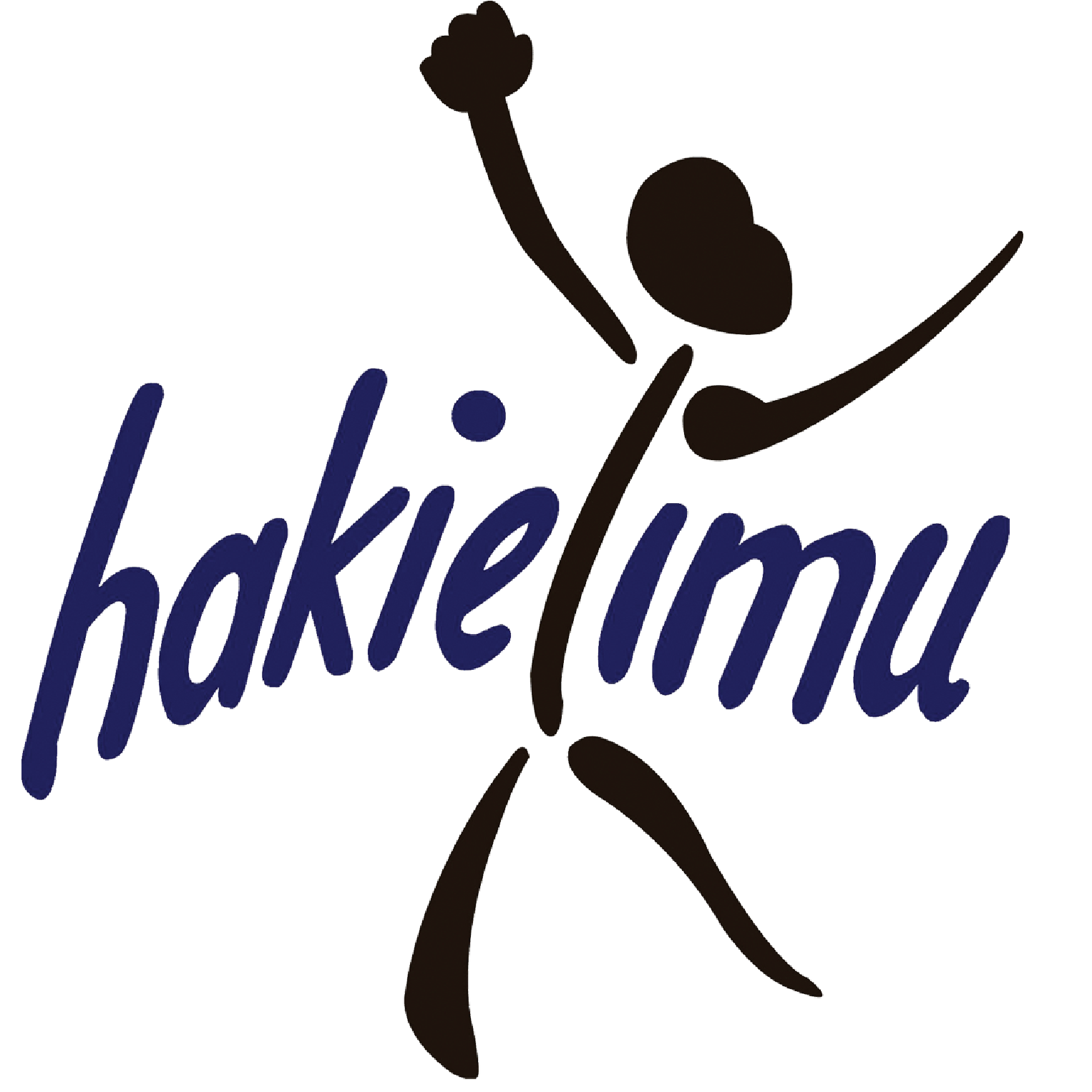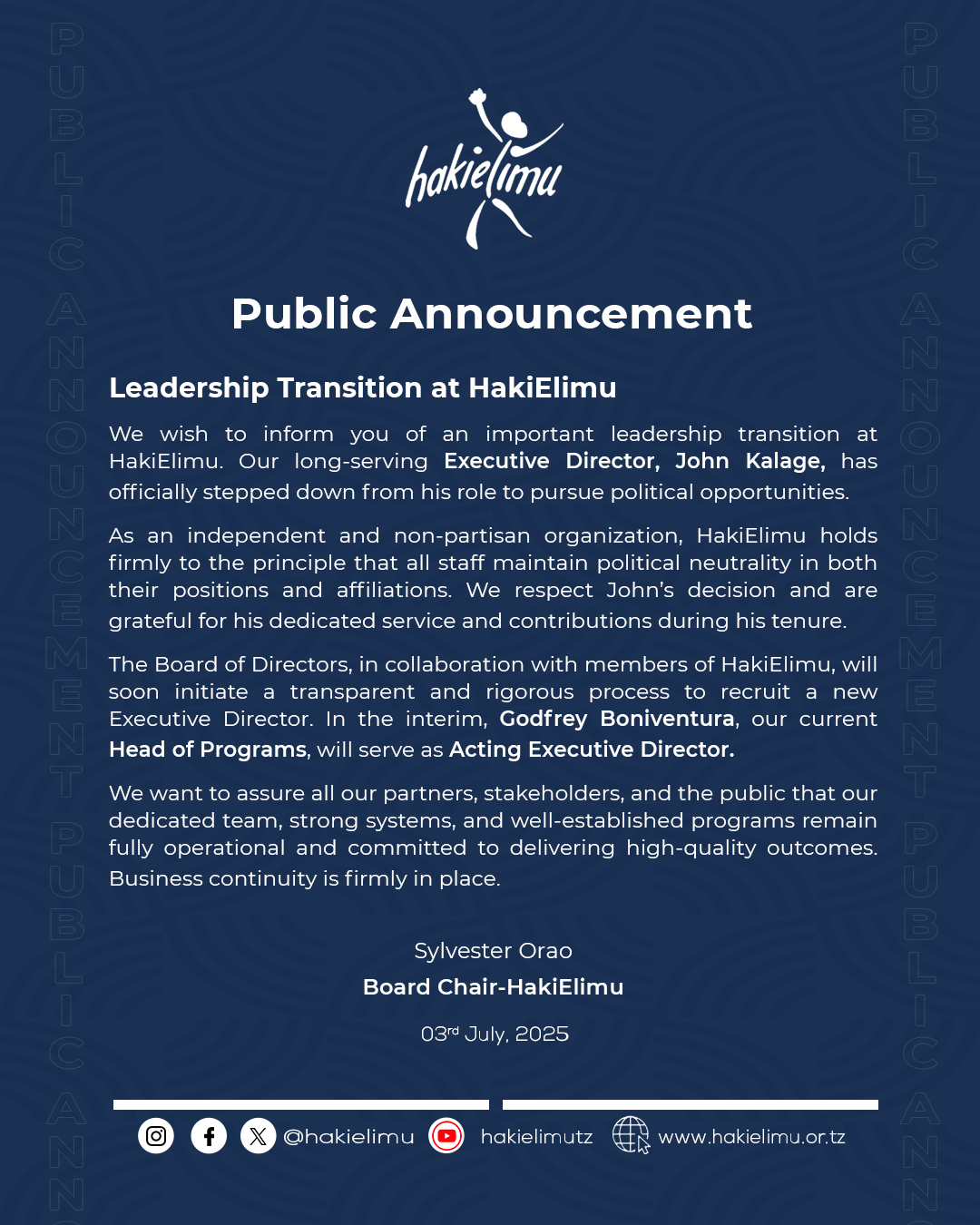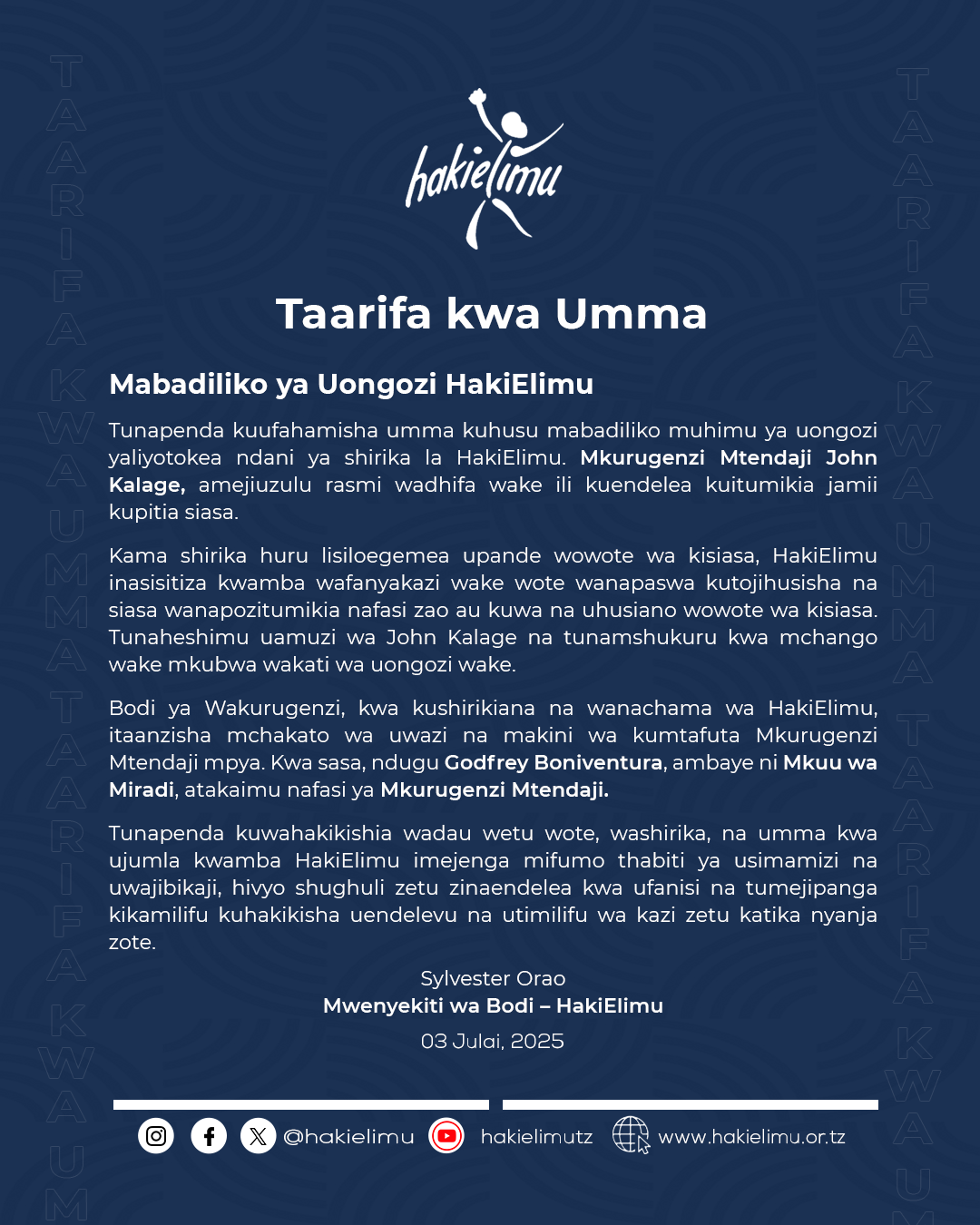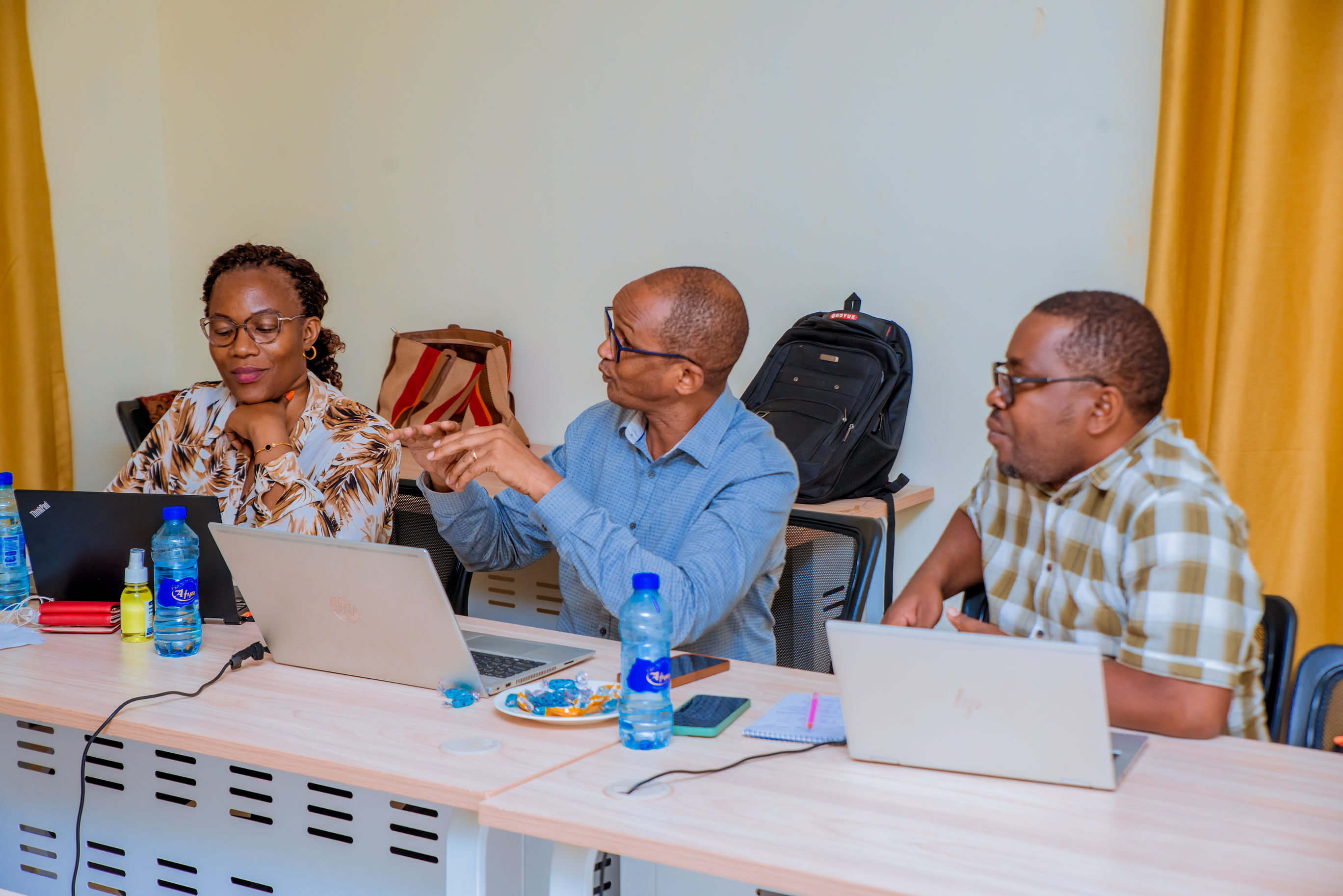HakiElimu today has announced the appointment of Mary Mzubwa Ndaro as its next Executive Director. Ndaro, who was selected after a rigorous open search process, will take up her role with immediate effect.
Mary Mzubwa Ndaro is a Tanzanian leader and social scientist with nearly two decades of experience advancing gender equality, social justice, and inclusive development. She is known for sharp analysis, principled judgment, and a gift for building coalitions that bring civil society, government, media, and grassroots actors into constructive alignment. Her work spans girls’ education, democratic participation, accountability, and protection of vulnerable groups. Ndaro has held senior roles at ActionAid, CARE International, I4ID, and The Caravan, where she leads national storytelling and advocacy efforts highlighting the realities of women in informal sectors. She brings a grounded, lived-experience approach with steady integrity and strategic clarity, and has helped shape national conversations on constitutional reform, gender equality, and inclusive governance.
Ndaro holds a bachelor’s degree in Sociology with specialization in Social Welfare from the University of Dar es Salaam and a master’s degree in Sociology from Wichita State University, USA.
“Ndaro is just the principled, courageous leader we need at this time”, said Sylvester Orao, Chair of HakiElimu’s Board. “She brings a fierce commitment to transforming education so that all children – girls and boys – learn real skills and strengthen values to build a just, equal and democratic society. She has demonstrated ability to build alliances across government, civil society and media, and can help bring our nation together to pursue shared purpose at this challenging time. We are so excited to have Ndaro join us as the new leader of HakiElimu”.
On learning of her appointment Ndaro remarked, “Like many Tanzanians, I have followed HakiElimu’s work over many decades. I have been inspired by the organization’s commitment to strengthening quality and equity in education, including by advancing public awareness and participation in social change. When students and citizens are aware of their rights and responsibilities, and can be part of shaping our future, we can create something beautiful and powerful together. I am delighted to join HakiElimu as its new ED and look forward to learning and collaborating with the staff, board, members and partners to help realize the education we deserve.”
HakiElimu is a Tanzanian civil-society organization, founded in 2001 to push for an open, just, democratic Tanzania where everyone enjoys an education that promotes equity, creativity, and critical thinking. It facilitates the transformation of education, both in and out of schools, by influencing policymaking and effective implementation; stimulating public dialogue and social change; conducting research, policy analysis and advocacy; and collaborating with partners to advance participation, transparency, accountability and social justice. Previous executive directors of HakiElimu were Rakesh Rajani, Elizabeth Missokia and John Kalage.









